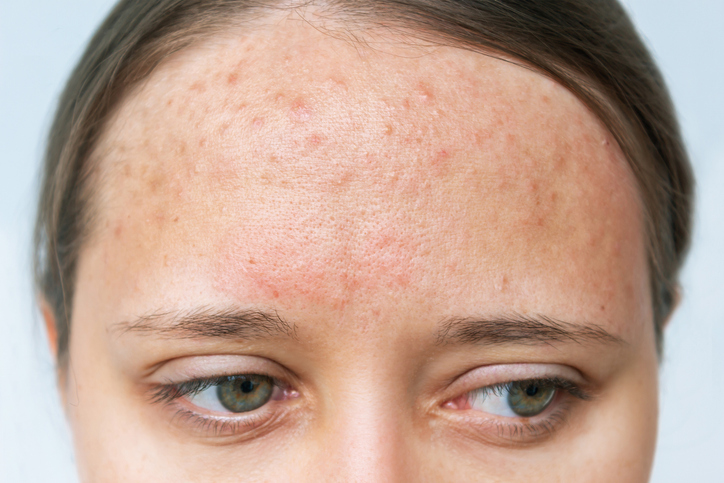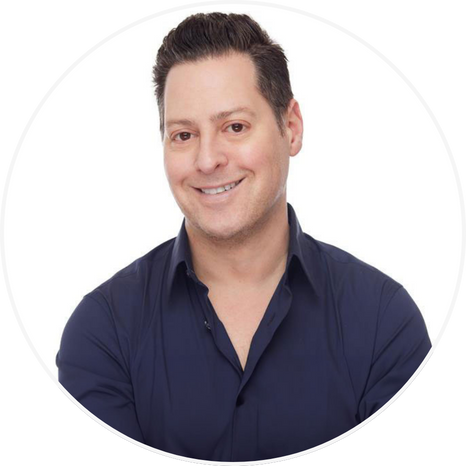Are Your Breakouts Resisting Traditional Treatments? You Could Have Fungal Acne

What Is Fungal Acne? And How Is It Different from Traditional Acne?
If your breakouts seem resistant to common acne treatments, there’s a chance you’re not dealing with typical acne at all. Fungal acne, also known as fungal folliculitis or pityrosporum folliculitis, is a lesser-known acne type that often goes undiagnosed. Unlike traditional acne (acne vulgaris), which is caused by clogged pores and skin bacteria, fungal acne is triggered by an overgrowth of malassezia furfur yeast in hair follicles. It thrives in warm, humid environments and can cause damage to the follicles.
According to the American Academy of Dermatology, it’s easier for bacteria to enter damaged follicles and cause an infection. Common factors that contribute to damaged hair follicles on the face include excessive sweating, greasy cosmetics, shaving and humidity exposure from hot tubs. The largest contributing factor for fungal acne is increased sebum or oil production. “Reducing oil production or treating conditions that lead to increased oil production is the most important preventative step,” explains Brian Connor, MD, a board-certified dermatologist at Schweiger Dermatology Group in Brooklyn, NY.
Another potential factor is genetic predisposition. Individuals with suppressed immune systems or on certain medications (such as steroids or long-term antibiotics) are also predisposed to developing fungal acne.
Recognizing Fungal Acne: Key Symptoms to Look For
- Consistent Clusters of Bumps: Small, uniform groups of bumps roughly the same size and shape create a distinct even pattern on the skin. There’s also a lack of whiteheads or blackheads.
- Itching or Burning Sensation: This inflammation is caused by yeast overgrowth.
- Rapid Onset: Fungal acne develops quickly, sometimes appearing overnight, especially in tropical environments.
How to Manage Fungal Acne
“Treating fungal acne largely comes down to treating the causative organism (malassezia),” Dr. Connor says.
Treatment usually involves topical antifungal agents, and in some cases, oral medications. For topical treatment, Dr. Connor suggests trying over-the-counter products including topical antifungals, like clotrimazole. In many cases, prescription antifungal shampoos and creams, applied for weeks to months, are necessary for effective treatment. If the fungal infection travels down into the hair follicle, oral anti-fungal medications may be necessary.
Antifungal medications are the most effective method of treating fungal acne. Maintaining a good skincare routine, including cleansing your face twice a day, can help reduce the risk of fungal acne flares as well. Your dermatology provider can help personalize your skincare routine to best suit your needs.
Schweiger Skincare Products Safe for Fungal Acne Treatment
Mild cleansers help treat fungal acne by unclogging pores on the face, chest and back and removing excess oils.
Schweiger skincare products that are safe to use for fungal acne include:
- Schweiger Pore Clearing Cleanser: 2% ultra-pure glycolic acid coupled with salicylic acid 2% helps regulate oil production and clear problematic skin that is more sensitive to irritation.
- Acne Clearing Serum: Formulated with salicylic acid, niacinamide and citric acid to support cell turnover, brighten skin and calm irritation.
- ClearMe Pads: Salicylic acid USP and glycolic acid are used in combination with hydrating ingredients to promote exfoliation, control oil, reduce breakouts and unclog pores.
In general, cleansers and serums are better for the face, while pads work best for the chest and back.
When to See a Dermatologist for Fungal Acne
You should see a dermatologist if you notice new acne or any changes in the appearance or symptoms of your acne. “It can be difficult to distinguish between fungal acne and typical acne that is caused by blocked pores and the bacteria that lives on our skin,” says Dr. Connor. Since the underlying cause is different — yeast in fungal acne versus bacteria in typical acne — the treatment approach for each type varies significantly. A dermatologist can help determine the cause and recommend the appropriate treatment.
Fungal Acne Dermatology at Schweiger Dermatology Group
If you struggle with fungal acne, consult with one of our dermatology providers, who can pinpoint the cause of your breakouts, recommend an effective treatment plan and help personalize your skincare regime.
To make an appointment, call or text (844) DERM-DOC / (844) 337-6362 or book an appointment online.
